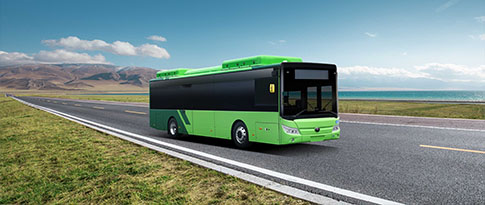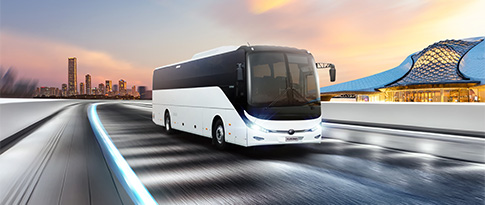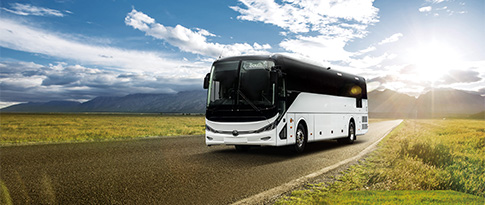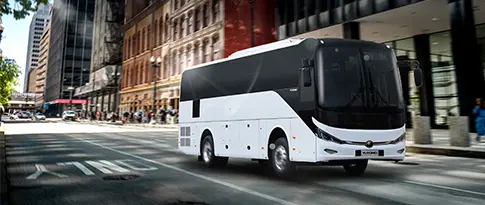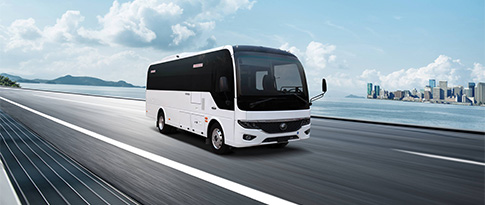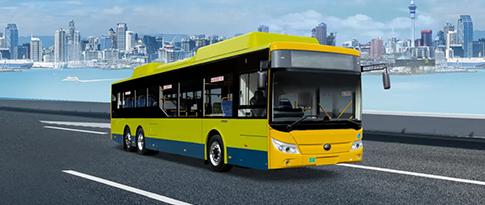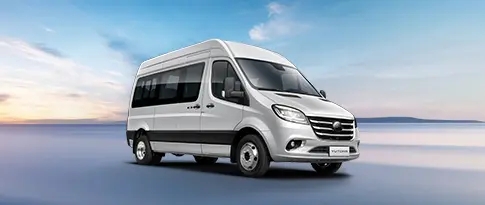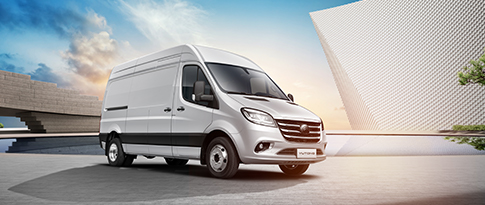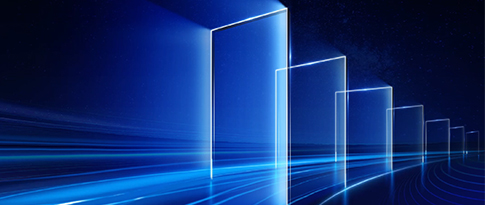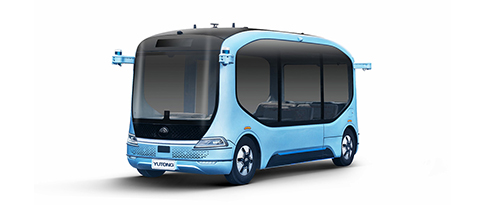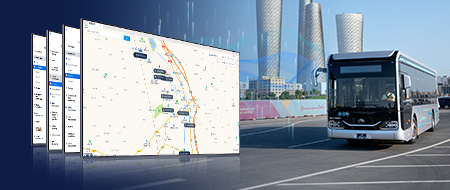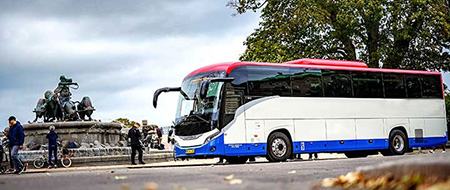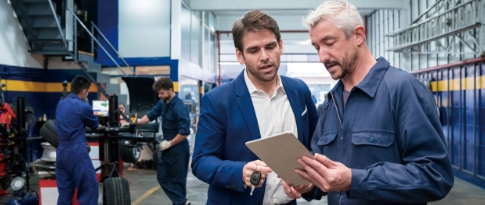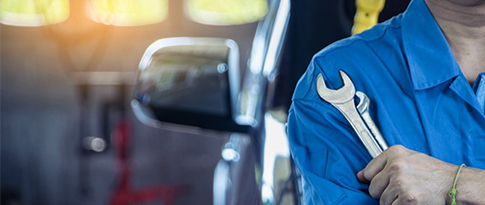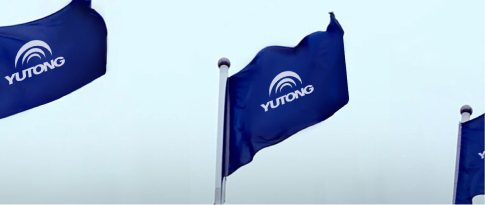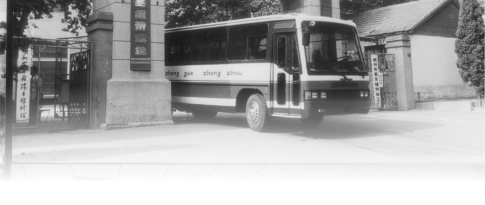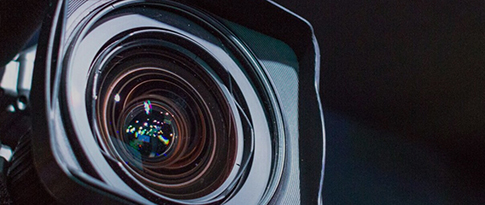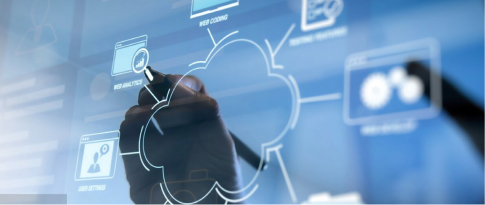1-Hour Charging, Fully-Charged Journey
Electric coaches are used for passenger transportation. Like other battery electric vehicles (BEV), battery electric coaches run on electricity only. They require effective charging to ensure they can cover extended ranges. However, there's still a notable gap in public knowledge regarding the charging mechanisms for electric coaches and the duration of the charging process. This article aims to shed light on electric coach charging.
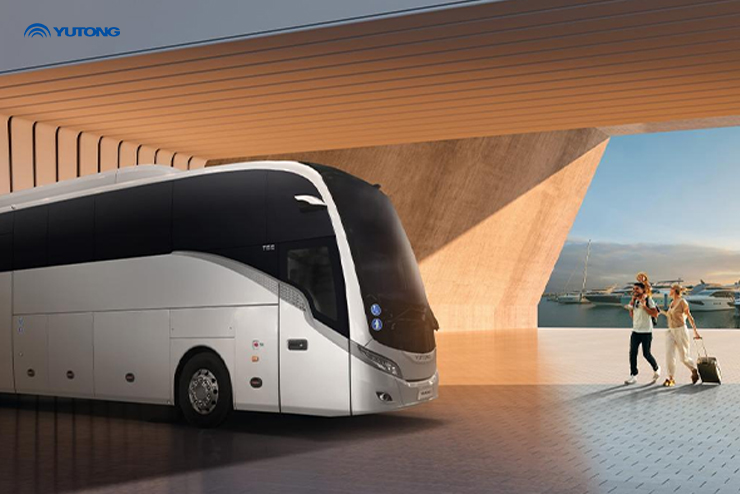
How to Charge Electric Coaches
There are two charging methods for e coaches:
Plug-in Charging
Like electric cars, electric coaches can be charged through EV charger guns. Users can simply plug the charger gun into the coach's charging port and then begin the charging process. This method is typically used when the coach is parked at a depot or a designated charging station.
Pantograph Charging
E coaches can also be charged through a pantograph system. A pantograph is a device that allows coaches to connect to an overhead charging station without the need for a physical plug-in connection.
Pantograph charging can be faster than plug-in charging and is particularly useful for quick top-ups during layovers or while passengers are boarding. However, this method requires specialized infrastructure, such as inductive charging pads, which means drivers can only charge their electric coaches at limited places if using pantograph charging.
How Long Does It Take to Charge an Electric Coach
The time it takes to charge an e coach isn't fixed. Several factors influence how long it takes to refill the battery. These include:
Battery Technology: Battery technology affects electric coach charging time. For example, lithium-ion or solid-state batteries can require less time to reach full charge.
Charging Station Power Output: The power output of the charging station directly affects the speed of charging. Higher power outputs can deliver energy to the battery more quickly, reducing the time it takes to charge.
Charger Type: The type of charger used (AC and DC) can influence charging times. DC fast chargers can deliver higher voltage and current, enabling faster charging compared to standard AC chargers.
Although the charging time for electric coaches can vary, a general overview can be provided:
Plug-in Charging Time
For regular e coaches, a full charge can take approximately 6-7 hours. It allows for daytime operations and overnight charging. With fast-charging technology, this time can even be reduced to around 1 hour.
Pantograph Charging Time
For electric coaches equipped with pantograph charging capabilities, pantograph charging is more expedited. A full charge can be achieved in less than 1 hour, allowing for quick stops during routes.
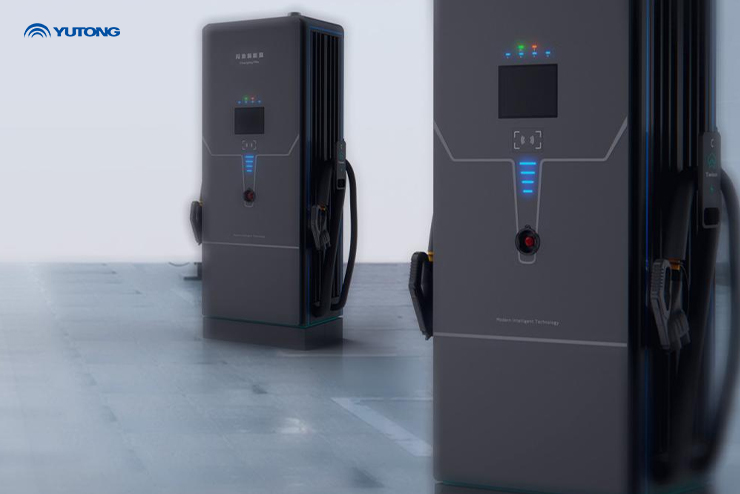
Other Electric Coach FAQs
1.Which charging system should I choose?
A plug-in charging system can be a preferred option over pantograph charging since pantograph charging necessitates specific equipment, and the investment for such infrastructure is high. While pantograph charging has the advantage of being able to fully charge electric coaches in an hour, it's worth noting that certain plug-in charging solutions are equally capable of achieving a full charge within the same timeframe.
2.How much range does an electric coach have?
The range of an e coach varies based on the size and capacity of its battery, the efficiency of the electric motors, and the driving conditions. Modern electric coaches can typically achieve ranges of 200 to 550 km on a single charge, suitable for most city and intercity routes.
3.Are electric coaches worth it?
Electric coaches are a worthwhile investment, considering their long-term benefits. They offer significant environmental advantages by reducing greenhouse gas emissions, contributing to a sustainable future.
The operational expenses are generally lower for the eco coaches when compared to those with internal combustion engines, as electricity is typically cheaper than diesel or gasoline. Electric coaches also require less maintenance due to fewer moving parts, which can lead to substantial savings over time.
Yutong Bus Provides Reliable Electric Coaches
Yutong Bus is a leading coach manufacturer with a proven track record in city buses, long-distance coaches, tourist coaches, etc. At Yutong, we have decades of experience designing and producing electric vehicles. Headquartered in China, we have sold more than 190,000 units to over 100 countries and regions. This translates to a significant reduction of carbon emissions by 16 million tons, an impact comparable to the environmental benefits of planting 130,000 hectares of trees.
Yutong electric coaches have plug-in fast charging capabilities, providing flexibility and convenience for coach operators. Yutong e coach is integrated with fast charging technologies. For example, the T12E features high charging efficiency. Charging through dual sockets is independent of each other and can support a vehicle charging current ranging from 400 to 500 amperes. This enables the vehicle to reach a full charge in just 1.5 hours.
With a lightweight structure and an efficient electric motor consuming ≤1.05 kWh/km, the T12E achieves a battery range of up to 350km. Its 8-way adjustable driver’s seat with air suspension provides premium comfort. The YESS nitrogen protection technology and anti-collision system ensure safety for both passengers and drivers.
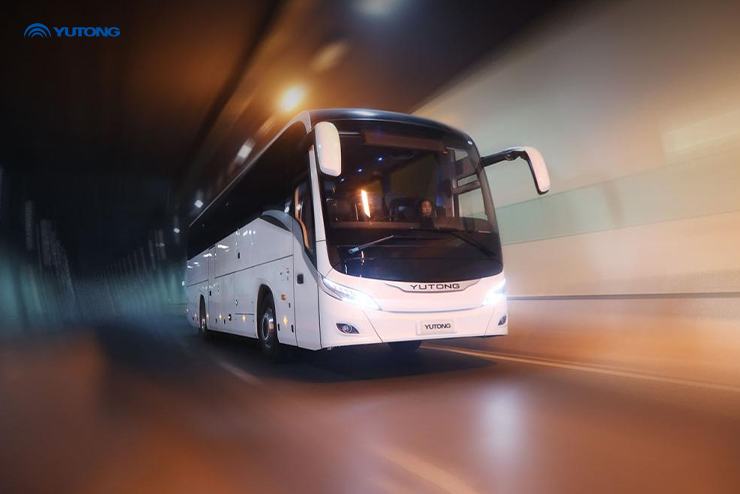
Conclusion
Overall, electric coaches can be charged through plug-in charging and pantograph charging. While charging times can vary based on factors such as battery technology and charger type, advancements in fast-charging technology are continually reducing the downtime required for these coaches.
For reliable e coaches, the leading coach manufacturer Yutong Bus provides innovative solutions. Our electric coaches are equipped with the latest fast-charging capabilities, making them not just environmentally friendly but also practical and convenient for use. We offer various coach models to meet specific customer needs. Browse our website for more information about our electric coaches.
Previous Repository
-

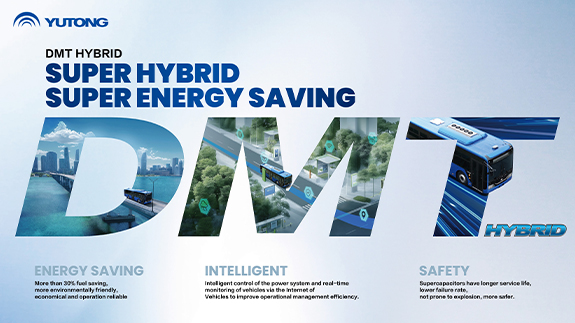
November 07,2024
High Efficiency and Energy Saving: The Advantages of Yutong's Innovative DMT Technology -

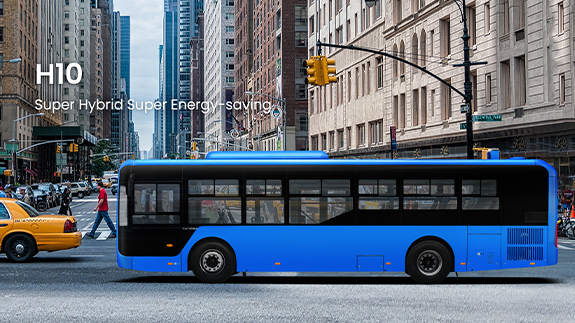
September 26,2024
High Efficiency and Energy Saving: The Advantages of Yutong's Innovative DMT Technology -

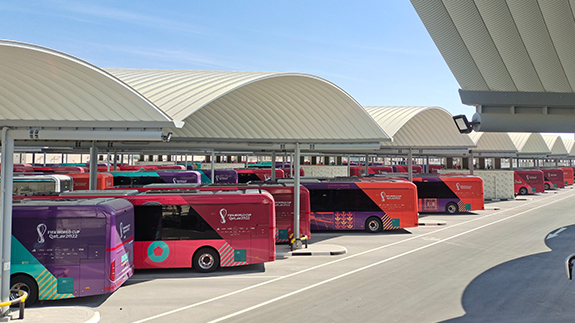
September 19,2024
Electric Buses vs Diesel Buses: A Comparative Analysis of Life-Cycle Operating Costs
Subscribe Now
Get updates you care about.
Submit
